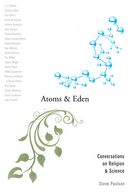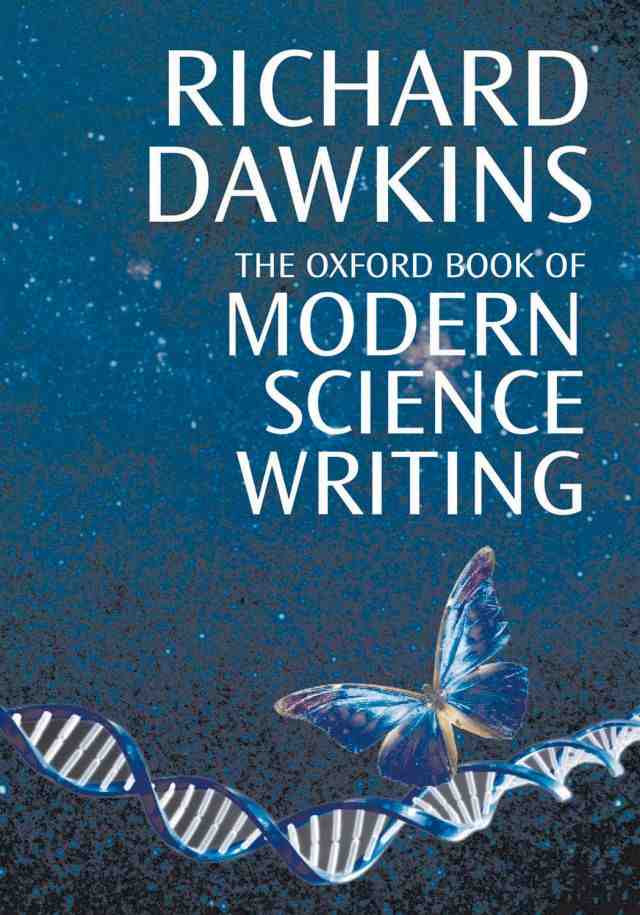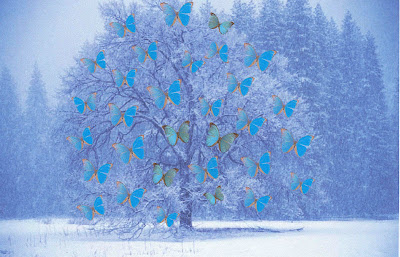What do scientists say about the “soul”? How does Richard Dawkins answer the question “why are we here?” In Part 2 of this series on religion, Steve Paulson (of NPR fame) reflects on the biggest questions in the ongoing science vs. religion debate. Part 1 can be found here.
Want more of The Oxford Comment? Subscribe and review this podcast on iTunes!
Featured in Part 2:
Steve Paulson, Executive Producer of To the Best of our Knowledge and author of Atoms and Eden


exclusive interviews from world famous atheist Richard Dawkins and chimpanzee advocate Jane Goodall

Rebecca Ford, Emeritus Blog Editor
Well the time has come for me to say goodbye to all of you lovely readers (don’t be upset, Lauren is a fabulous blogger). Running the OUPblog has been a dream job and leaving is very bittersweet. So I thought before I left we could take a trip down memory lane and review some of the best blog posts of the past. This list certainly is not conclusive, just a few of the thousands of posts I had the honor of sharing with you. Please keep in touch. You can follow my adventures on twitter @FordBecca. Ciao!
Holiday collections of our favorite books: 2006, 2007, 2008 (US), and 2008 (UK), and 2009.
Philip Pullman’s look at Paradise Lost.
A look at Lincoln’s finest hour by James M. McPherson.
A prediction that the Kindle would sell a million units in the first year by Evan Schnittman.
Andrew Smith quizzed us about hamburgers.
Anatoly Liberman’s look at the death of the adverb.
The story of the word “tase” by Ben Zimmer.
Colin Larkin looks at Christmas records.
Daniel Walker Howe reflects on his Pulitzer Prize win.
Our podcast series with Richard Dawkins.
Edward Zelinsky’s look at marriage.
Nikita, our department cat, reads!
David Perlmuter on slow blogging.
Charles O. Jones teaches us what it means to be president-elect.
Dennis Baron looks at his Amazon sales rank.
The lingo of the Big Lebowski by Mark Peters.
Donald Ritchie’s look at how the press almost missed the Watergate Scandal.
Shelley Fisher Fishkin’s look at Mark Twain and world literature.

Richard Dawkins is the bestselling author of The Selfish Gene and The God Delusion. He’s also a pre-eminent scientist, the first holder of the Charles Simonyi Chair of the Public Understanding of Science at Oxford, and is a fellow of New College, Oxford. Called “Darwin’s Rottweiler” by the media, he is one of the most famous advocates of Darwinian evolution. His most recent book is The Oxford Guide to Modern Science Writing, a collection of the best science writing in the last century.
This is the third in a series of podcasts we’re running from an interview with Dawkins. You’ve heard him speak about Alan Turing, the father of the modern computer, and Watson & Crick, the men who discovered the shape of DNA. Now, Dawkins tells us a bit more about his new book and reflects on the men who influenced his own theories.
Transcript after the jump.
DORIAN DEVINS: Welcome Richard Dawkins. You have a book out, The Oxford Book of Modern Science Writing, which you have edited. And you personally selected all the writings that are in this?
RICHARD DAWKINS: Yes, I selected them in collaboration with the OUP editor Latha Menon. We’ve worked together before; we worked together on my own collection of writings, which is called A Devil’s Chaplain. And so we worked well together, and we chose them together.
DEVINS: And how many different scientists are represented in this book?
DAWKINS: I haven’t counted.
DEVINS: It extends back to-the earliest writing is…
DAWKINS: Go back to the sort of Eddington-gene sort of time, I can’t remember what date they are, but sort of early part of the twentieth century. The decision was not to go back to the nineteenth century, that would have been a nice thing to do but it would have opened up a whole new vista which I didn’t feel like taking on.
DEVINS: And it would have necessitated your eliminating some of these people, I suspect. So, I see you have George Williams in here.
DAWKINS: George Williams was a very important influence in modern evolutionary theory. In 1966, he wrote a really seminal book called Adaptation and Natural Selection, which once and for all destroyed the theory of group selection, which was a very important thing to do at that time. And he substituted the view of evolution which I later christened the theory of the selfish gene. Williams didn’t use that phrase, but in effect the selfish gene was a new way of putting the theory that Williams had put forward in the 1960s. Oddly enough, I didn’t get it from Williams, I got it from Hamilton. Bill Hamilton, W. D. Hamilton, who’s also in the book and a very wonderful, eccentric character who I deeply loved and who died, tragically, not that long ago (about oh, well, actually maybe seven or eight years ago now). And Hamilton and Williams, I think, could be seen as the founding fathers of the selfish gene theory.
DEVINS: And what part did Hamilton bring in?
DAWKINS: Well Hamilton invented what Maynard Smith actually called kin selection; the idea that animals behave altruistically towards kin because they share genes. And in a way, you could say that everybody knew that about offspring, everybody knew about parental care, but what Hamilton showed was that the same principle as parental care works for brothers and sisters, nieces and nephews, etc.
ShareThis
By Cassie Ammerman- Publicity Assistant
Richard Dawkins is the bestselling author of The Selfish Gene and The God Delusion. He’s also a pre-eminent scientist, the first holder of the Charles Simonyi Chair of the Public Understanding of Science at Oxford, and is a fellow of New College, Oxford. Called “Darwin’s Rottweiler” by the media, he is one of the most famous advocates of Darwinian evolution. His most recent book is The Oxford Guide to Modern Science Writing, a collection of the best science writing in the last century.
pre-eminent scientist, the first holder of the Charles Simonyi Chair of the Public Understanding of Science at Oxford, and is a fellow of New College, Oxford. Called “Darwin’s Rottweiler” by the media, he is one of the most famous advocates of Darwinian evolution. His most recent book is The Oxford Guide to Modern Science Writing, a collection of the best science writing in the last century.
This is the first in a series of podcasts we’ll be running from an interview with Richard Dawkins. In it, Dawkins talks about the different scientists he chose to include in The Oxford Book of Modern Science Writing. In this selection, Dawkins talks with Dorian Devins about James Watson and Francis Crick, the two men famous for discovering the structure of DNA.
Transcript after the jump.
DORIAN DEVINS: Francis Crick is one of the people in here, and I know you…
RICHARD DAWKINS: Yes, I met him a couple of times. I know Jim Watson rather better. Francis Crick died a couple of years ago. He was of course the other half of Watson and Crick, and they were both indispensable. It’s a wonderful illustration of how two people coming together seem to make something that’s greater than the sum of their parts. Francis Crick has written a number of books. He’s always very thoughtful, very stimulating. It’s impossible for him to say anything that isn’t interesting, and he was one of the great, possibly the greatest, intellects of the molecular biology revolution, which started with Watson and Crick in 1953, when they were both young men. But Crick went on to in a way dominate the field. I mean, in the elucidation of the genetic code, the fact that it’s a triplet code, for example, he played a leading role in that. So he became a kind of elder statesman of molecular genetics, and then rather later in his life, he switched completely to a totally new field, which was the study of consciousness. And he was never really a proper neurobiologist, but he sort of somehow managed to well, use his eminence in the field to open doors to talk to neurobiologists. And once again, he was a very, very thoughtful, stimulating figure in that field, as well as his own field of molecular genetics.
DEVINS: Whereas I guess Watson, more or less, stuck to genetics, although he did…
DAWKINS: Yes he did stick with genetics, and Watson was pretty much involved in initiating the human genome project. He didn’t stay in the human genome project, but he was largely responsible for getting it started in the first place.
DEVINS: And their writing styles are so different. It’s interesting.
DAWKINS: Yes, well, that’s right. Watson’s writing style is amazingly readable, but very odd. I mean, it’s…any teacher of English would blue-pencil it straight away. He had a most weird tendency to stick strings of adjectives before a—not so much adjectives, more phrases that count as adjectives—so he’ll say, if he wants to say he walked by, well quite close to here is Keble College (which is the Victorian building designed by Butterfield), Watson will say “I walked by the Butterfield-designed Keble College.” Sticking an adjective, making a phrase into an adjective, and then sticking it before the noun. And it’s an odd way of writing, but for some reason, it’s very readable, and I find that his books are page turners in a way that any teacher of English would sort of veto.
DEVINS: It’s funny how the personalities come out in the writing sometimes.
DAWKINS: Yes, that’s true. I think it’s part of the personality, and I think it’s because Watson writes in such an irresponsible way. He doesn’t mind who he offends, and so you’re always kind of turning the page, waiting for the next bit of scandal really.
DEVINS: As he is in life.
DAWKINS: Yes.
ShareThis

To all of my friends who come to visit, I wish you all the magic this season brings!
Here's to a New Year that holds the promise of peace, health and abundance for one and all. I look forward to spending more time with you and sharing more art in 2008!
Until then, Merry Christmas...and remember, the magic is in the small things :)







I can see and feel the magic in this piece. So full it will take time to embrace. Thanks!
Merry Christmas Laurel, and may you have a blessed New Year!
Robert
http://robert-maclochlainn.blogspot.com/2007/12/merry-christmas-and-happy-new-year.html
Oh wow! The colors really caught my eye. Definitely looks magical! Hope your holidays are magical, too. I don't know if you realize this, but a year ago today you were the first person to comment on my blog. So today, I've awarded you the Best Blogger Buddy award. Thanks!
Merry Christmas to you too! May the new year bring blessings large and small and gifts to magical to be imagined.
I've always suspected that butterflies grow on trees. :)
definitely one of your best. has a cabinet of curiosities or Joseph Cornell feel.
Have a Happy new year. Ms. Lolo.
RegaRDS, Neil
This is very very beautiful!! Is this done digitally or with physical paints or what? Very magical!!
~ Diane Clancy
www.dianeclancy.com/blog
What could be more magical than a tree full of periwinkle butterflys? Yes, it is the little things that enlighten and add richness to our lives.
What a lovely piece of work. I feel truly honored to come across it this morning.
This is a beautiful piece! Hope you had a swell holiday season. I am looking forward to getting started on the ATC when things calm down around the Coles house.
This is beautiful. You have integrated the butterflies so beautifully ... It took me a while to realize the trees had butterflies. Very magical.
very beautiful. i love the pale blues and purples together...glistens.
Happy New Year!
The real magic: springtime in the winter!!!
:-)
Beautiful illo!